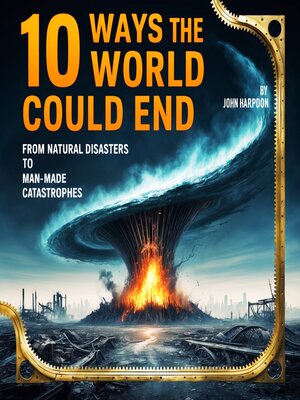10 Ways the World Could End
audiobook (Unabridged) ∣ From Natural Disasters to Man-Made Catastrophes
By John Harpoon

Sign up to save your library
With an OverDrive account, you can save your favorite libraries for at-a-glance information about availability. Find out more about OverDrive accounts.
Find this title in Libby, the library reading app by OverDrive.



Search for a digital library with this title
Title found at these libraries:
| Library Name | Distance |
|---|---|
| Loading... |
Our planet is an extraordinary place, teeming with life and natural wonders. Yet, beneath the beauty and stability of our world lies an inherent fragility that we must never overlook. From the forces of nature to the actions of humanity, numerous threats exist that could drastically alter the course of life on Earth. These dangers range from natural disasters such as volcanic eruptions and asteroid impacts to man-made catastrophes like nuclear war and the consequences of climate change. While these events may seem distant or improbable, they are very real and have the potential to affect us all in profound ways.
To fully grasp the magnitude of these threats, it is crucial to understand how they arise and their potential consequences. Many of the dangers that could lead to the end of the world are rooted in forces that have shaped our planet for millions of years. However, modern society faces new, unique risks that previous generations never imagined. Natural disasters, though unpredictable, are part of the Earth's natural cycles, while human actions—whether through pollution, warfare, or technological mismanagement—have introduced entirely new categories of risk. As technology advances and our global interconnectedness grows, the potential for widespread disaster becomes more complex and difficult to anticipate.
When examining the ways the world could end, it is essential to distinguish between natural and man-made catastrophes. Natural disasters, like earthquakes, tsunamis, and pandemics, have been occurring throughout Earth's history, long before humans arrived on the scene. These events have shaped ecosystems, driven evolutionary processes, and, at times, caused mass extinctions. On the other hand, man-made catastrophes, such as nuclear warfare or the unchecked expansion of artificial intelligence, are unique to modern civilization.







